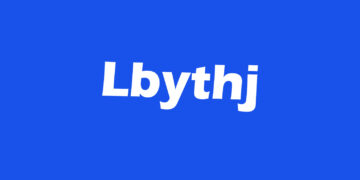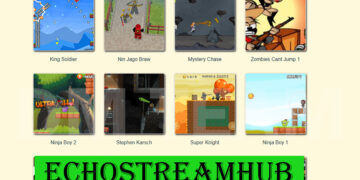Introduction
Have you heard of UndergrowthGames and wondered what an UndergrowthGames contributor is? Maybe you want to be part of a game community, help create content, and learn skills along the way. In this article, I will explain what this role means, how you can join, what you can gain, and what challenges to expect. I will also answer common questions. Let’s begin!
What Is UndergrowthGames?
First, it is helpful to know what “UndergrowthGames” refers to, though the term is not clearly established in official sources.
Many guides say that UndergrowthGames is a community or platform where creators, developers, and fans collaborate on game-related content. It is often described as an indie or small-scale creative space, not a large game company, where contributions matter. It allows people with different skills such as art, writing, coding, and testing to join in. The idea is that ideas, community, and collaboration play a big part of its structure.
Because there is no official “UndergrowthGames website” that clearly defines the term, much of what we know comes from community and blog guides. So please treat this as a helpful guide rather than a rulebook.
What Does an UndergrowthGames Contributor Do?
An UndergrowthGames contributor is someone who helps the platform or project by offering skills, time, ideas, or content. The work may be voluntary or partly paid, depending on the project. Here are some common roles:
| Role | What You Do |
|---|---|
| Writer / Storyteller | Create lore, dialogue, descriptions, world history. |
| Artist / Designer | Draw characters, environments, UI elements, concept art. |
| Programmer / Developer | Write code, build mechanics, fix bugs, make small modules. |
| Sound / Music Creator | Compose music, design sound effects. |
| Tester / QA | Play test, find bugs, give feedback to improve quality. |
| Community Helper / Moderator | Answer questions, guide new contributors, moderate forums. |
| Content Creator / Blogger | Write guides, reviews, tutorials about the project or games. |
These roles exist in many collaborative games and communities. A contributor may pick more than one role depending on their interest and time.
Why Become a Contributor?

If you are thinking about it, here are good reasons to become an UndergrowthGames contributor:
- Gain experience
Doing real work helps you build your skills such as writing, art, code, and teamwork. - Boost your portfolio
You get real projects you can show to future employers or clients. - Be part of a creative community
Meet people with the same interests, learn from them, and collaborate. - Recognition
Your name or work may be credited in projects or in the community. - Possibly earn money
Some projects might pay contributors or share profits. This depends on the arrangement.
Even beginners can join and contribute because enthusiasm, willingness to learn, and consistency matter more than perfect skills.
However, because this is not yet verified by a strong official source, you should check any project’s rules and agreements before doing paid work.
How to Become a Contributor: Step by Step
Here is a simple path you can follow.
1. Learn and Practice Your Skills
Before joining, try to have samples of your work:
- If you want to write, make some short stories or game lore.
- If you want to do art, create character sketches or concept pieces.
- If you want to code, try small projects or mods.
- If you want to test, practice giving clear feedback.
These samples will help you show what you can do.
2. Find the UndergrowthGames Community
Look for places where UndergrowthGames exists:
- Forums, Discord servers, or discussion groups.
- Community blogs or “calls for contributors” posts.
- Platforms that host indie games or collaborative projects.
Once you find them, observe how they operate and what styles they prefer.
3. Introduce Yourself and Offer Help
When you join:
- Write a polite message about who you are, what you can do, and why you want to help.
- Share your sample work or portfolio links.
- Ask if there are small tasks you can try first.
Being humble and open to feedback helps.
4. Start Small
Agree to small tasks at first. For example:
- Fixing a typo
- Drawing a small icon
- Writing a short lore note
- Testing a module for bugs
This shows your reliability and helps you learn the process.
5. Be Active and Communicate
- Keep in touch with team members.
- Share progress updates.
- Ask questions if stuck.
- Accept and apply feedback.
Good communication builds trust.
6. Take on Bigger Tasks When Ready
Once your small work is good and trusted, you may be asked to:
- Lead a feature
- Make a bigger art piece
- Create a full story or mission
- Help coordinate other contributors
At this stage, you may negotiate for credit, payments, or profit sharing.
Tips for Success
Here are tips that help you succeed as a contributor.
- Be consistent even small, regular contributions matter.
- Accept feedback see critique as a chance to improve.
- Be respectful of other contributors, ideas, and deadlines.
- Keep files organized clear names, version control, and backups.
- Communicate clearly set your available time, ask for help when needed.
- Balance your workload do not overcommit and burn out.
- Learn from others observe how veteran contributors operate.
Challenges You May Face
- Unclear direction sometimes project plans change or lack clarity. Ask for goals and priorities.
- Creative conflicts disagreeing on ideas is natural. Stay polite and open.
- Time management contributors often have other commitments.
- No or low payment not all contributions are paid. Be cautious and read agreements.
- Project stagnation small indie projects sometimes slow or stop.
Knowing these challenges helps you avoid frustration.
Example or Analogy
Think of an UndergrowthGames contributor like being part of a community kitchen. You bring your ingredient or skill, you help cook or contribute, and share the meal or project. At first, you help with small tasks like peeling vegetables or simple work. With trust over time, you may be allowed to make entire dishes or big tasks. Everyone eats together and learns.
Final Thoughts
Becoming an UndergrowthGames contributor is an exciting way to join a creative community, sharpen your skills, and make real contributions to game projects. Because there is no strong official definition, you will need to explore the community, show your creativity, and be patient.
If you have a skill to share such as writing, art, coding, sound, or testing, and a wish to grow, then start small, stay consistent, and be friendly. Even small contributions can open bigger doors.
10 Frequently Asked Questions (FAQs)
- Do I need special skills to become a contributor?
No. Basic skills help, but willingness to learn, consistency, and passion are more important. - Is this role paid or free?
It depends. Some tasks may be unpaid for experience, while others may give payment or profit share. Always check with the project team. - How do I find a project to contribute to?
Search in game communities, forums, blogs, or Discord for “calls for contributors” or “help wanted” posts. Be active and ask. - Can I do more than one role such as art and writing?
Yes. If you have multiple skills and time, many contributors work in more than one area. - How many hours a week should I commit?
It depends on your schedule and the project’s needs. Even a few hours per week can make a difference. - What if I make a mistake or mess up?
That is okay. Most teams expect revisions. Be honest, fix your work, learn, and move on. - Will my name appear in the game or credits?
Often yes, if the project includes contributor credit. But that depends on the team’s policy. - Can minors under 18 contribute?
Possibly, if allowed by the project rules. But adult supervision or guardian consent may be needed for agreements. - Can I stop contributing anytime?
Yes. But it is kind to tell the team you are leaving so they can adjust plans. - How do I prove that I contributed?
Keep your samples, version logs, email exchanges, screenshots, or published pieces. These show your work and role.














































